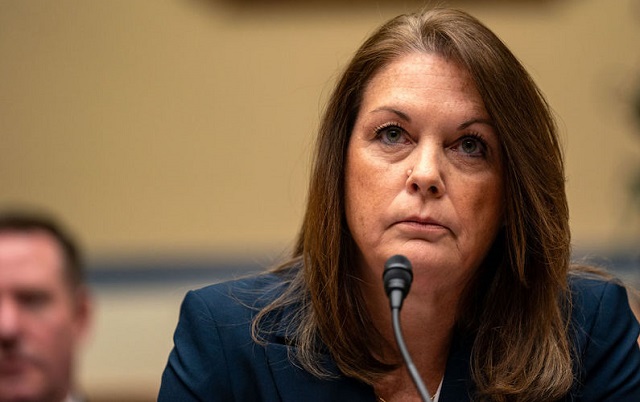Alberta
CFL faces very difficult future
This is an unpleasant reality: The Canadian Football League faces an extremely difficult future.
In truth, it may not have a future at all.
In the few days since commissioner Randy Ambrosie finally confirmed the obvious that the 2020 season had been only a figment of many imaginations, there has been a rush of both critics and devout supporters to explain at least partially the many reasons for the CFL’s arrival on the edge of final, fatal league disappearance.
Most of the observers are content to point out that large markets such as Toronto and Vancouver lost their way after National Football League franchises were established in nearby Buffalo (the Bills) and Seattle (the Seahawks),creating a painful reduction of several million dollars in gate revenue each year.
If only that were true . . . but it is not.
Much more damage has been done through simple — but very thorough — disrespect of the game by the owners and presidents and general managers positioned to grow Canadian football rather than to destroy it.
At one point, the Canadian brand of football was vastly different from the U.S.-based game although both admittedly grew from the foundation of British rugby.
In the 1950s, after decades of evolution, the biggest obvious disparity remained the difference in on-field lineups: 12 in Canada, 11 in the United States. The extra players provided more blocking and, often, more of a ground attack. Although imports had been approved, there were still more Canadians — many more — on every roster.
At that time, the Americans allowed unlimited blocking on every play; in Canada, no legal interference was allowed more than 10 yards downfield. Blocking on pass plays was a non-no in this country for many years.
This space, and many more, have wallowed in the old truth that Canada once paid U.S. imports more than the NFL did. Witness,for example, all-time Edmonton Eskimo great Jackie Parker; he and other imports signed here because the Canadian dollar had more value on the market than the American buck did.
Former Calgary Stampeders stars Earl Lunsford and Don Luzzi — all-star fullback and two-way tackle — entered the CFL a few years later for similar reasons. They played when the single point had strategic importance. Now, it is considered both unique and insignificant.
Veteran punt returners like 5-foot-8 Gene Wlasiuk of Saskatrchewan boasted wryly that they entered the league as six-footers but shrank when swarmed by tacklers. No blocking on punt returns, back then.
During this general time frame, U.S.- trained coaches and general managers became a majority. Jim Finks in Calgary, himself once a starter at quarterback in the NFL, heard claims that the CFL players were “too small”: to be real football players. He countered by pointing out the NFL had finally followed the CFL in using elusive runners and receivers; he was right. By and large, Canadians didn’t notice.
Hugh Campbell created a dynasty in Edmonton by making sure Canadian players had some ability, and then using them in every situation.
Through it all, import limits grew from a handful to today’s situation where rosters are clogged with more unknown U.S. college kids and pro failures than ever before. Alleged experts present the obnoxious theory that the CFL should openly become a farm system for NFL teams.
Misguided commissioner Ambrosie saluted his entry to the new job by proposing that the CFL should be loaded, as quickly as possible, with citizens from Greece, Germany, Scotland, or any other nation with strong, well-conditioned athletes who might be better than the kids graduating year after year from Canadian universities.
History shows that the CFL has spent so much time emulating the NFL and seeking “gimmicks” to boost profits that the road to any future was lost entirely. The most devastating example of contempt for their own product came when Herb Capozzi, a former B.C. Lions player, wrote a nationally-syndicated weekend column in which he insisted “Canadians Play Lousy Football.”
Later, he operated the Lions franchise and ultimately the entire league.
No further questions needed.
Alberta
Alberta awash in corporate welfare
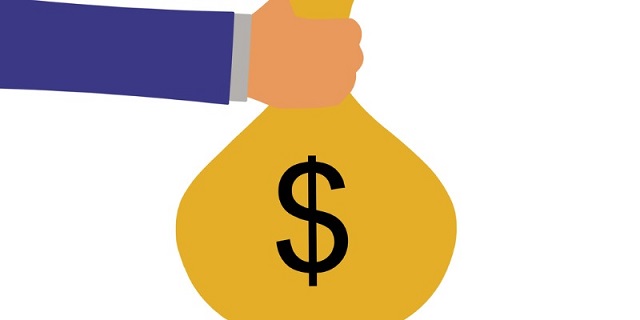
From the Fraser Institute
By Matthew Lau
To understand Ottawa’s negative impact on Alberta’s economy and living standards, juxtapose two recent pieces of data.
First, in July the Trudeau government made three separate “economic development” spending announcements in Alberta, totalling more than $80 million and affecting 37 different projects related to the “green economy,” clean technology and agriculture. And second, as noted in a new essay by Fraser Institute senior fellow Kenneth Green, inflation-adjusted business investment (excluding residential structures) in Canada’s extraction sector (mining, quarrying, oil and gas) fell 51.2 per cent from 2014 to 2022.
The productivity gains that raise living standards and improve economic conditions rely on business investment. But business investment in Canada has declined over the past decade and total economic growth per person (inflation-adjusted) from Q3-2015 through to Q1-2024 has been less than 1 per cent versus robust growth of nearly 16 per cent in the United States over the same period.
For Canada’s extraction sector, as Green documents, federal policies—new fuel regulations, extended review processes on major infrastructure projects, an effective ban on oil shipments on British Columbia’s northern coast, a hard greenhouse gas emissions cap targeting oil and gas, and other regulatory initiatives—are largely to blame for the massive decline in investment.
Meanwhile, as Ottawa impedes private investment, its latest bundle of economic development announcements underscores its strategy to have government take the lead in allocating economic resources, whether for infrastructure and public institutions or for corporate welfare to private companies.
Consider these federally-subsidized projects.
A gas cloud imaging company received $4.1 million from taxpayers to expand marketing, operations and product development. The Battery Metals Association of Canada received $850,000 to “support growth of the battery metals sector in Western Canada by enhancing collaboration and education stakeholders.” A food manufacturer in Lethbridge received $5.2 million to increase production of plant-based protein products. Ermineskin Cree Nation received nearly $400,000 for a feasibility study for a new solar farm. The Town of Coronation received almost $900,000 to renovate and retrofit two buildings into a business incubator. The Petroleum Technology Alliance Canada received $400,000 for marketing and other support to help boost clean technology product exports. And so on.
When the Trudeau government announced all this corporate welfare and spending, it naturally claimed it create economic growth and good jobs. But corporate welfare doesn’t create growth and good jobs, it only directs resources (including labour) to subsidized sectors and businesses and away from sectors and businesses that must be more heavily taxed to support the subsidies. The effect of government initiatives that reduce private investment and replace it with government spending is a net economic loss.
As 20th-century business and economics journalist Henry Hazlitt put it, the case for government directing investment (instead of the private sector) relies on politicians and bureaucrats—who did not earn the money and to whom the money does not belong—investing that money wisely and with almost perfect foresight. Of course, that’s preposterous.
Alas, this replacement of private-sector investment with public spending is happening not only in Alberta but across Canada today due to the Trudeau government’s fiscal policies. Lower productivity and lower living standards, the data show, are the unhappy results.
Author:
Alberta
‘Fireworks’ As Defence Opens Case In Coutts Two Trial
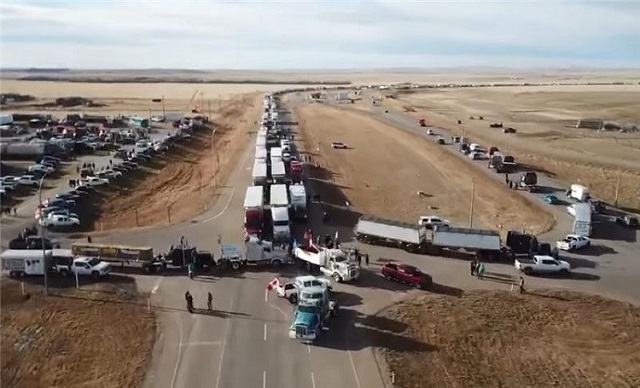
From the Frontier Centre for Public Policy
By Ray McGinnis
Anthony Olienick and Chris Carbert are on trial for conspiracy to commit murder and firearms charges in relation to the Coutts Blockade into mid-February 2022. In opening her case before a Lethbridge, AB, jury on July 11, Olienick’s lawyer, Marilyn Burns stated “This is a political, criminal trial that is un Canadian.” She told the jury, “You will be shocked, and at the very least, disappointed with how Canada’s own RCMP conducted themselves during and after the Coutts protest,” as she summarized officers’ testimony during presentation of the Crown’s case. Burns also contended that “the conduct of Alberta’s provincial government and Canada’s federal government are entwined with the RCMP.” The arrests of the Coutts Four on the night of February 13 and noon hour of February 14, were key events in a decision by the Clerk of the Privy Council, Janice Charette, and the National Security Advisor to the Prime Minister, Jody Thomas, to advise Prime Minister Justin Trudeau to invoke the Emergencies Act. Chief Justice Paul Rouleau, in submitting his Public Order Emergency Commission Report to Parliament on February 17, 2023, also cited events at the Coutts Blockade as key to his conclusion that the government was justified in invoking the Emergencies Act.
Justice David Labrenz cautioned attorney Burns regarding her language, after Crown prosecutor Stephen Johnson objected to some of the language in the opening statement of Olienick’s counsel. Futher discussion about the appropriateness of attorney Burns’ statement to the jury is behind a publication ban, as discussions occurred without the jury present.
Justice Labrenz told the jury on July 12, “I would remind you that the presumption of innocence means that both the accused are cloaked with that presumption, unless the Crown proves beyond a reasonable doubt the essential elements of the charge(s).” He further clarified what should result if the jurors were uncertain about which narrative to believe: the account by the Crown, or the account from the accused lawyers. Labrenz stated that such ambivalence must lead to an acquittal; As such a degree of uncertainty regarding which case to trust in does not meet the “beyond a reasonable doubt” threshold for a conviction.”
On July 15, 2024, a Lethbridge jury heard evidence from a former employer of Olienicks’ named Brian Lambert. He stated that he had tasked Olienick run his sandstone quarry and mining business. He was a business partner with Olienick. In that capacity, Olienick made use of what Lambert referred to as “little firecrackers,” to quarry the sandstone and reduce it in size. Reducing the size of the stone renders it manageable to get refined and repurposed so it could be sold to buyers of stone for other uses (building construction, patio stones, etc.) Lambert explained that the “firecrackers” were “explosive devices” packaged within tubing and pipes that could also be used for plumbing. He detailed how “You make them out of ordinary plumbing pipe and use some kind of propellant like shotgun powder…” Lambert explained that the length of the pipe “…depended on how big a hole or how large a piece of stone you were going to crack. The one I saw was about six inches long … maybe an inch in diameter.”
One of Olienick’s charges is “unlawful possession of an explosive device for a dangerous purpose.” The principal evidence offered up by RCMP to the Crown is what the officers depicted as “pipe bombs” which they obtained at the residence of Anthony Olienick in Claresholm, Alberta, about a two-hour drive from Coutts. Officers entered his home after he was arrested the night of February 13, 2022. Lambert’s testimony offers a plausible common use for the “firecrackers” the RCMP referred to as “pipe bombs.” Lambert added, these “firecrackers” have a firecracker fuse, and in the world of “explosive” they are “no big deal.”
Fellow accused, Chris Carbert, is does not face the additional charge of unlawful possession of explosives for a dangerous purpose. This is the first full week of the case for the defence. The trial began on June 6 when the Crown began presenting its case.
Ray McGinnis is a Senior Fellow with the Frontier Centre for Public Policy who recently attended several days of testimony at the Coutts Two trial.
-

 National1 day ago
National1 day agoLiberals offer no response as Conservative MP calls Trudeau a ‘liar’ for an hour straight
-
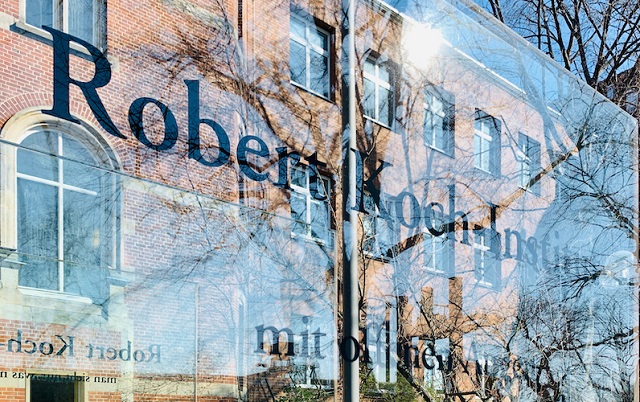
 COVID-191 day ago
COVID-191 day agoLeaked documents: German gov’t lied about shots preventing COVID, knew lockdowns did more harm than good
-
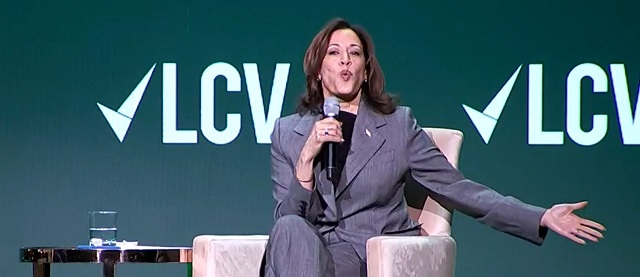
 Economy1 day ago
Economy1 day agoKamala Harris’ Energy Policy Catalog Is Full Of Whoppers
-

 International1 day ago
International1 day agoSwitzerland’s new portable suicide ‘pod’ set to claim its first life ‘soon’
-

 Business1 day ago
Business1 day agoFederal government seems committed to killing investment in Canada
-
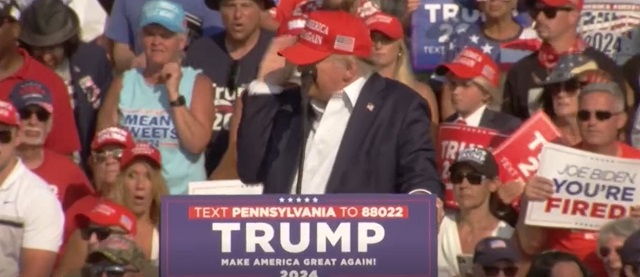
 International20 hours ago
International20 hours agoHouse Passes Bipartisan Resolution Establishing Trump Assassination Attempt Task Force
-
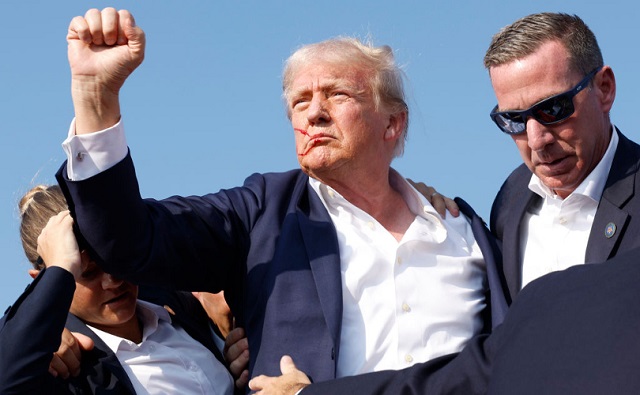
 Crime10 hours ago
Crime10 hours agoEverything you need to know about the failed assassination attempt of Donald Trump
-

 Alberta1 day ago
Alberta1 day ago‘Fireworks’ As Defence Opens Case In Coutts Two Trial




